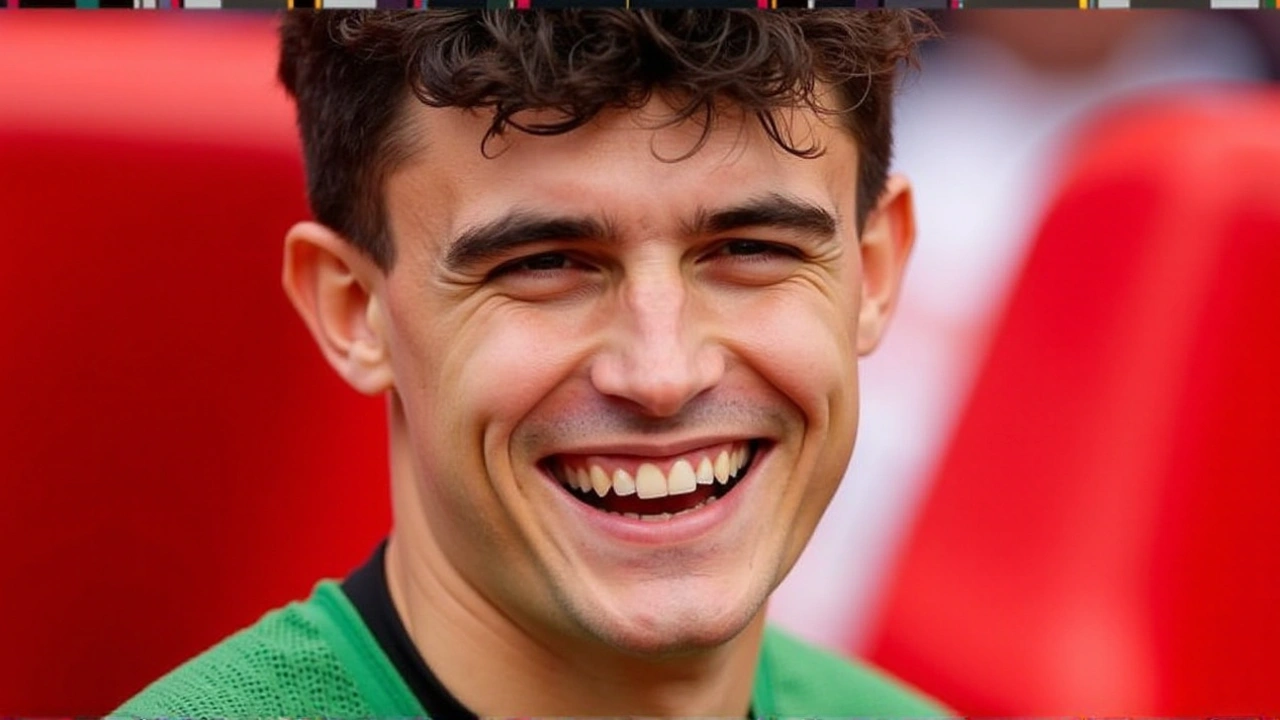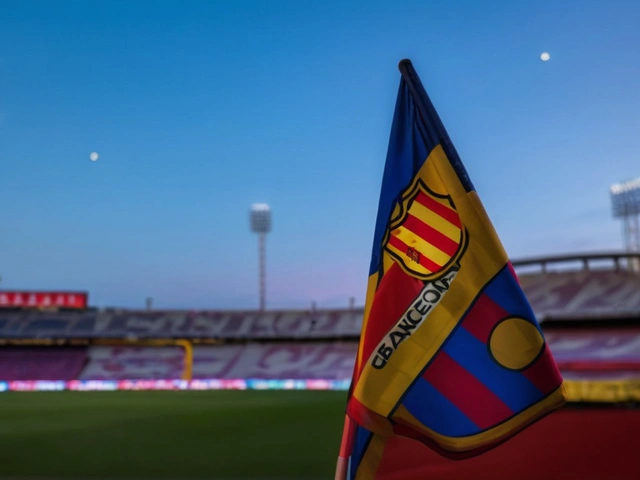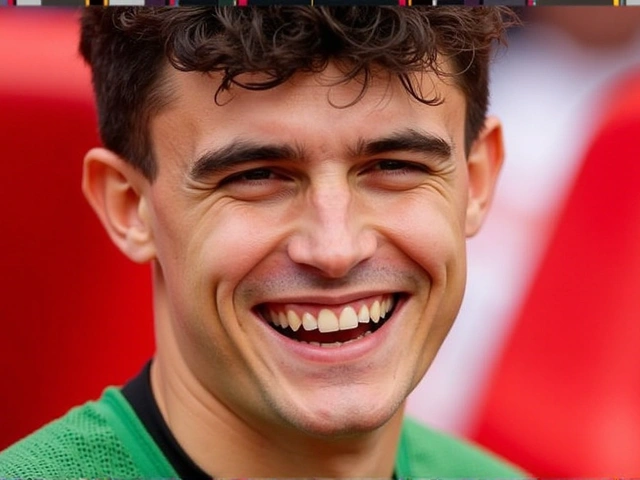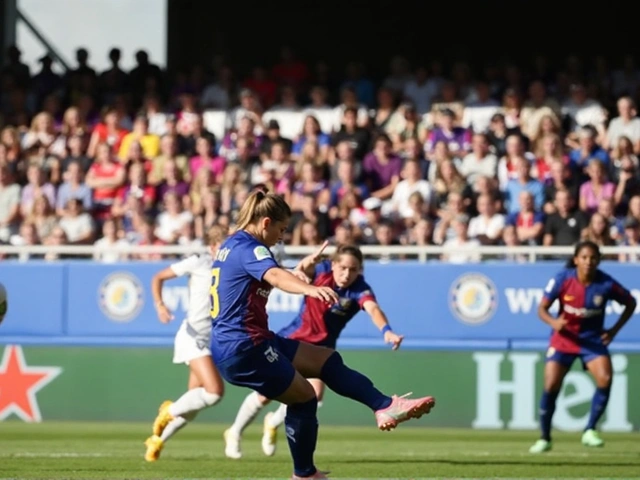Barcelona Makes Last-Minute Bid for Liverpool's Stefan Bajcetic with Tempting Offer
In a dramatic turn of events, Barcelona has entered the race to sign Liverpool's young midfield talent, Stefan Bajcetic, at the eleventh hour. The Spanish football giant has made a substantial offer that could alter the course of Bajcetic's expected move to Red Bull Salzburg. Previously, Bajcetic was on the verge of completing a season-long loan to the Austrian club, and had even reportedly undergone a medical exam earlier this week. But Barcelona's late swoop has thrown a spanner in the works, leaving Liverpool and Bajcetic with a crucial decision to make.
Barcelona's proposal is nothing short of impressive. The offer includes a €4 million loan fee and an option to buy for €30 million. This option effectively places Bajcetic's valuation at approximately £28.7 million. In addition to these terms, Barcelona has also suggested a buy-back option priced at €70 million, alongside a 20% sell-on clause. Such financial terms are significant, particularly considering Liverpool acquired Bajcetic from Celta Vigo for a mere £224,000 back in 2021.
Financial Stakes and Timing
The timing of Barcelona's offer adds an extra layer of complexity to the situation. The football transfer windows in both Spain and England close on Friday, leaving Liverpool with very little time to make a decision. The financial implications of Barcelona's offer cannot be ignored. For a player who was initially signed for a modest fee, the potential for a significant financial return is enticing for the Merseyside club. However, Liverpool might push for an obligation to buy rather than just an option, ensuring they secure a substantial deal.
Adding another layer to the developing story is the presence of Tyler Morton. Initially, Morton was poised to leave Liverpool, but recent developments indicate he will now remain at the club after Bayer Leverkusen's loan bid was turned down. This subplot potentially impacts Liverpool's willingness to let Bajcetic go, as retaining midfield depth becomes a more pressing concern.
Barcelona's Financial Juggling Act
Barcelona's interest in Bajcetic comes amidst their own widely publicized financial woes. Despite facing budget constraints, the club's willingness to allocate significant resources towards securing Bajcetic underscores their belief in the young midfielder's potential. Barcelona's strategy seems to be one of investing in young talent to build a more sustainable future. This approach is crucial as the club aims to navigate its financial challenges while remaining competitive on the field.
The proposed buy-back option at €70 million also signifies Barcelona's intent to keep their future options open. Should Bajcetic develop into a top-tier player, Barcelona wants the security to bring him back without breaking the bank at that future date. Combined with the sell-on clause, it appears Barcelona is crafting a comprehensive financial package that benefits both clubs and the player in the long term.
Liverpool's Perspective
For Liverpool, the financial offer on the table is tempting. When considering the initial investment of £224,000 for Bajcetic, a potential sale at nearly £30 million represents a fantastic return. However, Liverpool will also need to weigh their immediate and future needs in midfield. Bajcetic is considered one of the promising young talents in their squad, and letting go of such a player could impact their squad depth. Yet, the funds acquired could be reinvested into other areas of the team, providing an opportunity to strengthen the squad further.
Moreover, the impact on team dynamics and developmental pathways for other young players at Liverpool could be another point of consideration. The management team, led by Jurgen Klopp, must evaluate how this move aligns with their broader strategic vision. Do they prioritize short-term financial gain or long-term squad development?
The Waiting Game
As the transfer deadline approaches, all eyes are on this evolving situation. Will Liverpool agree to Barcelona's lucrative offer? Will Bajcetic opt for a potentially transformative move to La Liga, or will he continue his development in the quieter environment of Red Bull Salzburg? The coming days will undoubtedly bring clarity.
In the fast-paced world of football transfers, this episode underscores how quickly situations can change. Clubs must remain agile, ready to seize unexpected opportunities while navigating the intricate web of negotiations, player careers, and financial realities. For now, Liverpool, Barcelona, Bajcetic, and their respective fan bases can only watch, wait, and speculate as the clock ticks down.





Comments
The valuation dynamics underscore a paradigmatic shift in asset monetization, leveraging incremental equity extraction.
Barcelona's bid feels like an overinflated fantasy 🙄
Wow what a move 🏃♂️💨 let's see how it shapes the squad!
In the grand tapestry of football economics, the late-stage intervention by Barcelona serves as a fascinating case study. The club's willingness to allocate a €4 million loan fee, coupled with a €30 million purchase option, reflects a strategic calculus that transcends mere on-field considerations. Historically, such financial gymnastics have been employed by elite institutions seeking to hedge against developmental uncertainty. By embedding a buy‑back clause at €70 million, Barcelona effectively secures a future re‑acquisition right, a maneuver reminiscent of option theory in financial markets. Moreover, the inclusion of a 20% sell‑on clause introduces a layered revenue stream that could amortize the initial outlay over multiple transfer windows. From a developmental perspective, Bajcetic's formative years in La Liga could accelerate his technical maturation, thereby enhancing his market valuation. Yet, one must also contemplate Liverpool's perspective, wherein the club balances a modest initial investment against a prospective windfall. The potential infusion of nearly £30 million could be redeployed to address midfield depth or fortify other positions. Simultaneously, retaining Tyler Morton adds a stabilizing factor for Liverpool's immediate competitive objectives. The temporal proximity to the transfer deadline injects a sense of urgency that is rare in such high‑stakes negotiations. It also raises questions about the efficacy of pre‑season loan structures versus permanent transfers in nurturing talent. In broader terms, this episode underscores the interconnectedness of financial prudence and sporting ambition in modern football. As fans, analysts, and stakeholders observe, the ensuing decision will reverberate across both clubs' strategic trajectories. Ultimately, the market dynamics at play illustrate a microcosm of the sport's ever‑evolving fiscal landscape, where value is as much constructed as it is inherent. Let us watch with keen interest as the clock ticks down, aware that each tick carries the weight of multi‑million‑pound implications. The narrative will undoubtedly continue to unfold, offering lessons for clubs navigating similar crossroads in the future.
While some may view this as a mere opportunistic splurge, the underlying strategic scaffolding reveals Barcelona's commitment to cultivating a new generation of midfield virtuosos.
Could the inclusion of a buy‑back clause indicate Barcelona's anticipation of rapid player development, or is it a safeguard against market volatility?
Love the excitement around this deal it's a win win for both clubs and the kid!
It smells like a hidden agenda orchestrated by third‑party investors looking to cash in on a rising star's future transfer fees.
The structuring of the loan fee, option price, and sell‑on percentage suggests a sophisticated risk‑adjusted return model that warrants deeper quantitative analysis.
If Liverpool channels the funds wisely, we could see a refreshed squad that competes on multiple fronts next season.
From a philosophical standpoint, the very act of transferring a player encapsulates the dialectic between individual agency and institutional ambition, a tension that Barcelona appears eager to navigate through this calculated financial proposition. The inclusion of both option and buy‑back mechanisms serves not merely as a contractual safety net but as an epistemic statement about the club's belief in the player's latent potential. Moreover, the 20% sell‑on clause operates as a temporal bridge, linking present valuation to prospective future market dynamics, thereby aligning the interests of both selling and buying entities across an extended horizon. While critics may decry the monetary magnitude, it is essential to recognize that football, in its modern incarnation, operates within a hyper‑capitalist framework wherein asset liquidity is paramount. Consequently, this deal reflects a nuanced understanding of both sporting merit and fiscal stewardship, a balance that many clubs struggle to achieve. Observers would do well to monitor how this transaction influences the broader ecosystem of talent development and financial engineering within European football.
The numbers simply don’t add up.
Interesting angle, but I'd argue that Barcelona's foresight transcends mere splurge, weaving a tapestry of future relevance and brand resonance.
Yo, the vibe is def lit! keep ur game strong and ya'll see the win.
Got any thoughts on why Barcelona would stretch their budget so far? 🤔⚽️
The analysis presents a comprehensive view and underscores the strategic depth involved; commendable articulation.
Great point! If you want, I can share a quick breakdown of how those percentages impact the clubs' financial models later 😄📊